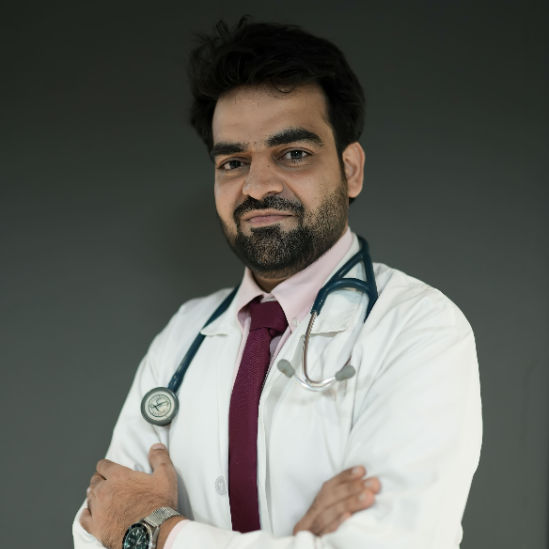H3N2 Spread: How It Transmits and Affects
Understand how the H3N2 influenza virus spreads and impacts the body. Learn about its transmission methods, symptoms, and who is most at risk of severe illness.


H3N2 Spread: How It Transmits and Affects
The H3N2 virus is a type of influenza (flu) virus that can cause respiratory illness. It spreads easily and can lead to mild to severe symptoms, especially in vulnerable groups like children, the elderly, and those with weakened immune systems. Understanding how H3N2 spreads and affects health can help you take preventive measures and seek timely care if needed.
What Is H3N2?
H3N2 is a subtype of the Influenza A virus, known for causing seasonal flu outbreaks. It mutates frequently, making it challenging for the immune system to recognise and fight it effectively. This is why flu vaccines are updated each year to match the circulating strains.
How Does H3N2 Spread?
The virus spreads mainly through:
1. Respiratory Droplets: When an infected person coughs, sneezes, or talks, tiny droplets containing the virus can land in the mouths or noses of nearby people.
2. Surface Contact: Touching surfaces contaminated with the virus (like doorknobs, phones, or tables) and then touching your face can lead to infection.
3. Close Contact: Being in close proximity (within 6 feet) of an infected person increases the risk of transmission.
People with H3N2 are most contagious in the first 3-4 days after symptoms appear, but some may spread the virus even before they feel sick.
Get The Test Here
Symptoms of H3N2 Infection
Symptoms usually appear 1-4 days after exposure and may include:
- Fever and chills
- Cough (often severe)
- Sore throat
- Runny or stuffy nose
- Body aches and headaches
- Fatigue
- Shortness of breath (in severe cases)
Some people, especially children, may also experience vomiting or diarrhoea. While most recover within 1-2 weeks, complications like pneumonia, bronchitis, or worsening of chronic conditions (such as asthma or heart disease) can occur.
Get Your Symptoms Checked By Top Specialists
Who Is at Higher Risk?
Certain groups are more likely to develop severe illness from H3N2:
- Adults aged 65+
- Young children (under 5, especially under 2)
- Pregnant women
- People with chronic illnesses (diabetes, lung disease, heart disease, weakened immunity)
How to Protect Yourself from H3N2
1. Get Vaccinated
- The annual flu vaccine is the best way to reduce the risk of severe illness. While it may not prevent infection entirely, it can lessen symptoms and complications.
2. Practice Good Hygiene
- Wash hands frequently with soap and water for at least 20 seconds.
- Use hand sanitizer if soap isn’t available.
- Avoid touching your face, especially eyes, nose, and mouth.
3. Wear a Mask in Crowded Places
- Masks can help reduce the spread of respiratory droplets, especially in enclosed or high-risk settings.
4. Maintain Distance from Sick Individuals
- If someone around you is coughing or sneezing, try to keep a safe distance.
5. Disinfect Frequently Touched Surfaces
- Clean doorknobs, phones, keyboards, and other shared surfaces regularly.
6. Boost Your Immunity
- Eat a balanced diet rich in fruits, vegetables, and proteins.
- Stay hydrated.
- Get enough sleep (7-9 hours for adults).
- Exercise regularly to strengthen immunity.
What to Do If You Get Infected?
If you experience flu-like symptoms:
- Rest at home: Avoid going to work or school to prevent spreading the virus.
- Stay hydrated: Drink plenty of fluids (water, herbal teas, soups).
- Take over-the-counter medications: Pain relievers (like paracetamol) can help with fever and body aches.
- Use a humidifier or steam: Helps ease congestion and coughing.
- Monitor symptoms: Seek medical help if you experience difficulty breathing, persistent fever, or worsening symptoms.
When to See a Doctor?
Consult a healthcare provider if:
- Symptoms worsen or don’t improve after a week.
- You have difficulty breathing or chest pain.
- High fever persists beyond 3-4 days.
- You belong to a high-risk group (elderly, pregnant, chronic illness).
Can You Book a Consultation or Test for H3N2?
If you suspect H3N2 infection, you can:
- Book a doctor consultation through Apollo 24|7 for expert advice.
- Get tested if recommended by your doctor.
Early diagnosis and care can help manage symptoms and prevent complications.
Conclusion
H3N2 flu spreads easily, but simple precautions like vaccination, handwashing, and avoiding close contact with sick individuals can significantly reduce the risk. If you do get infected, rest, hydration, and timely medical care can help you recover faster.
Book a consultation with Apollo 24|7 doctors today for expert guidance on flu prevention and treatment.
Consult Top Specialists
Consult Top Specialists

Dr. D Bhanu Prakash
General Practitioner
10 Years • MBBS, AFIH, Advanced certificate in critical care medicine, Fellowship in critical care medicine
Hyderabad
Apollo 24|7 Clinic, Hyderabad

Dr. Suraja Nutulapati
General Physician/ Internal Medicine Specialist
10 Years • MBBS, MD (Internal Medicine)
Hyderabad
Apollo 24|7 Clinic, Hyderabad
(850+ Patients)

Dr. Mohammed Kamran
General Practitioner
5 Years • MBBS, FIDM
Nashik
Apollo 24|7 Clinic - Maharashtra, Nashik

Dr. Vasanthasree Nair
General Practitioner
15 Years • MBBS
Angamaly
Apollo 24|7 Clinic - Kerala, Angamaly
(425+ Patients)

Dr Divya Lekha Gunta
General Practitioner
10 Years • MBBS, MD (Pathology)
Visakhapatnam
Apollo 24|7 Clinic - Andhra Pradesh, Visakhapatnam
Get Your Symptoms Checked By Top Specialists

Dr. D Bhanu Prakash
General Practitioner
10 Years • MBBS, AFIH, Advanced certificate in critical care medicine, Fellowship in critical care medicine
Hyderabad
Apollo 24|7 Clinic, Hyderabad

Dr. Suraja Nutulapati
General Physician/ Internal Medicine Specialist
10 Years • MBBS, MD (Internal Medicine)
Hyderabad
Apollo 24|7 Clinic, Hyderabad
(850+ Patients)

Dr. Mohammed Kamran
General Practitioner
5 Years • MBBS, FIDM
Nashik
Apollo 24|7 Clinic - Maharashtra, Nashik

Dr. Vasanthasree Nair
General Practitioner
15 Years • MBBS
Angamaly
Apollo 24|7 Clinic - Kerala, Angamaly
(425+ Patients)

Dr Divya Lekha Gunta
General Practitioner
10 Years • MBBS, MD (Pathology)
Visakhapatnam
Apollo 24|7 Clinic - Andhra Pradesh, Visakhapatnam



.webp)
